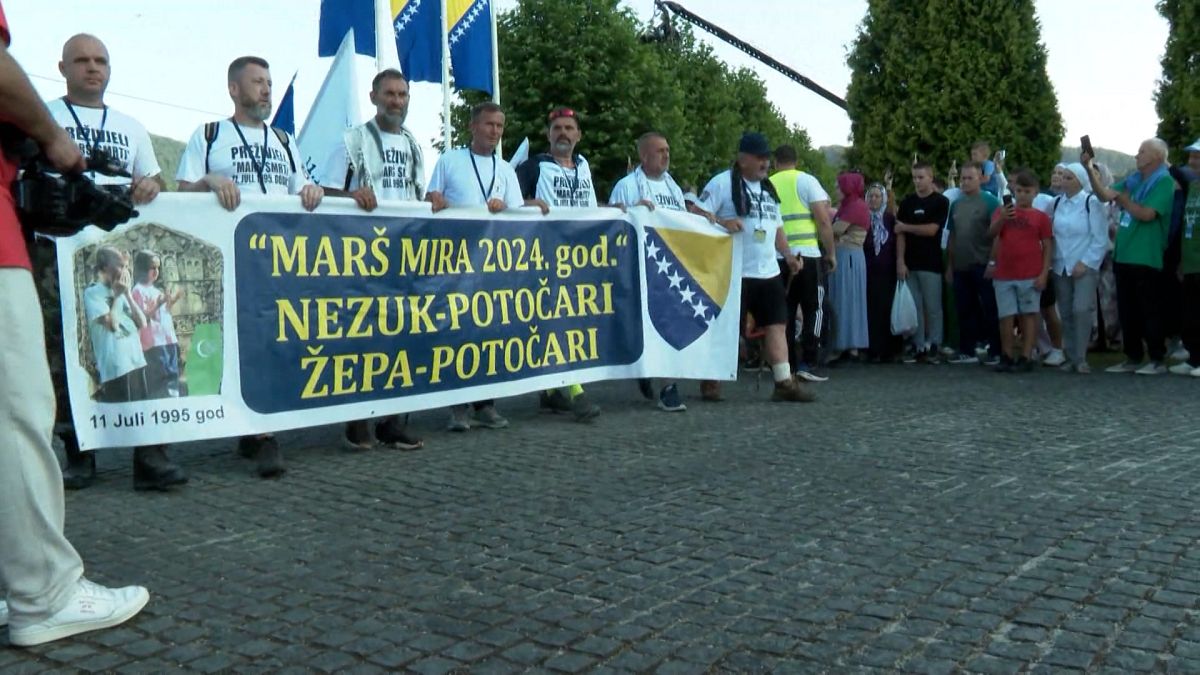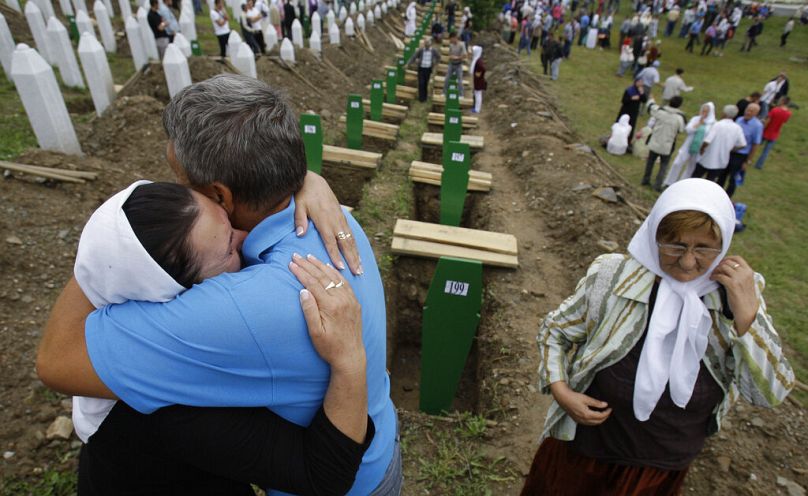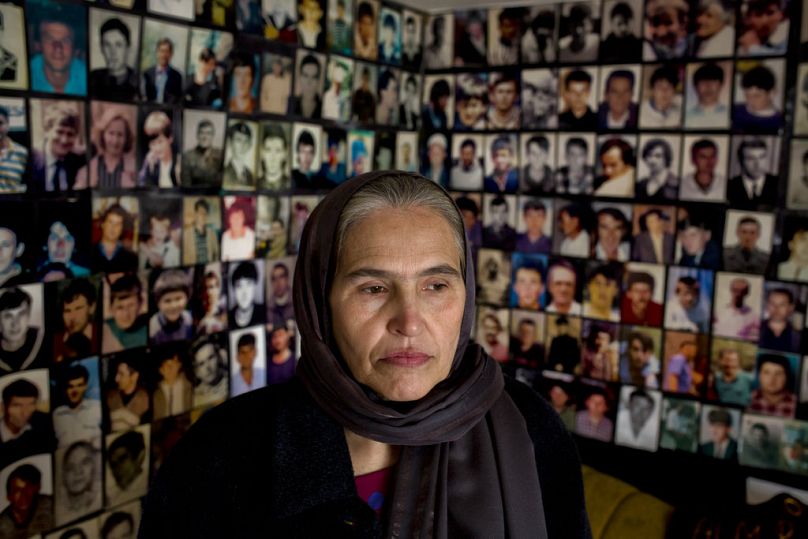
Surviving family members and children of the victims of the Srebrenica genocide joined hundreds of people in a peace march in Bosnia and Herzegovina to mark the anniversary of the 1995 massacre.
Thousands of participants reached Potočari after three days of retracing the route many Bosniaks took to find refuge, escaping from the eastern Bosnian town further to the country’s north.
This year’s march was particularly challenging due to the intense heat and difficult terrain.
According to organisers, around 6,000 people, including 250 children, walked this year. One participant passed away during the march, organisers said, adding that they did not want to publicise his identity until after the event.
Dozens of human rights activists held banners that said “We will never forget the genocide in Srebrenica” and the number “8372” referring to the number of victims.
In May, the United Nations approved a resolution establishing an international day of reflection and commemoration of the Srebrenica genocide, when Bosnian Serb forces killed more than 8,000 Bosniak men and boys over the course of three days in July 1995.
The vote in the 193-member General Assembly was 84-19, with 68 nations abstaining. Neighbouring Serbia was vehemently against the resolution, claiming the events in Srebrenica were not genocide but a “terrible crime”.
More than 700 years in prison for Srebrenica killings
The Srebrenica genocide remains among the worst atrocities committed during the Yugoslav dissolution wars of the 1990s.

After 45 years of peace under President Josip Broz Tito’s rule, Yugoslavia, comprised of six republics at the time, disintegrated in a series of wars that engulfed Slovenia, Croatia and Bosnia.
In Bosnia, the war saw the three main ethnic groups — Bosnian Serbs, who are Eastern Orthodox, Catholic Bosnian Croats, and Bosniaks, who are Muslim — pitted against each other along ethnic lines.
On July 11, 1995, Bosnian Serbs overran a UN-protected safe area in Srebrenica. They separated more than 8,000 Bosniak men and boys from their wives, mothers and sisters and slaughtered them. Those who tried to escape were chased through the woods and over the mountains around the ill-fated town.

The perpetrators then dumped their victims’ bodies into hastily made mass graves, which they later dug up with bulldozers, scattering the remains among other burial sites to hide the evidence of their war crimes.
The Bosnian Serb wartime political leader Radovan Karadžić and his military commander Ratko Mladić were both convicted of genocide in Srebrenica by a special UN war crimes tribunal in The Hague.
In all, the tribunal and courts in the Balkans have sentenced close to 50 Bosnian Serb wartime officials to more than 700 years in prison for the Srebrenica killings.
However, a significant number of Serbian and Bosnian Serb officials still celebrate Karadžić and Mladić as national heroes, downplaying or even denying the Srebrenica killings.





